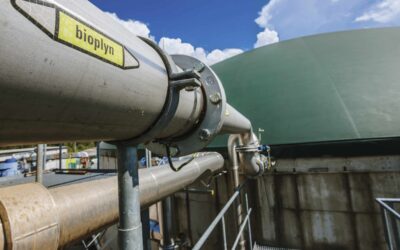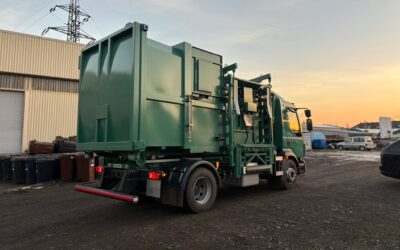Biomethane from Rapotín is offered by innogy
For the first time in the Czech Republic, drivers of compressed natural gas (CNG) cars have the opportunity to try driving on BioCNG. Biomethane-enriched natural gas is an emission-pure variant of CNG, which, when burned, releases up to 80% less carbon dioxide emissions into the air than petrol or diesel, and thus meets even the strictest limits of pure mobility. innogy obtains biomethane from biodegradable waste made in EFG Rapotín BPS, which belongs to the Energy financial group holding. It plans to test with this 100% renewable gas on its 63 CNG filling stations located throughout the Czech Republic by the end of June this year.
“At EFG Rapotín BPS, we obtain advanced biofuel from biogas, which has certified zero greenhouse gas emissions. This is a new source of renewable energy that the Czech Republic needs both to improve the environment and to meet the goals of the use of RES in transport, “says Martin Vrtiška, sales director of the Energy financial group.
“The possibility of storing biomethane in the gas distribution system and its consumption at any connected location is a great advantage. This is also why it is perceived as part of solving many problems at once, whether it is the energy recovery of waste, the reduction of air emissions in transport or the reduction of carbon dioxide emissions in the energy mix of fuels, “Mr. Vrtiška adds.
Latest articles
Natural gas shortage signals faster transition to renewable sources
Europe is facing growing uncertainty in natural gas deliveries, exacerbated by lower gas supplies in recent months. The cold winter has once again exposed the fragility of the current energy system, which still relies largely on scarce and geopolitically unstable...
EFG Group invests CZK 26 million in the modernisation of gastro waste collection
As part of its "tridimgastro.cz" project, the Energy financial group (EFG) is putting into operation new collection vehicles with an integrated washing system for separating containers from April. The service focuses on the collection, transport and recycling of...


